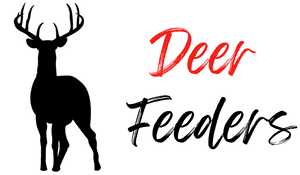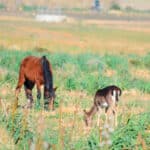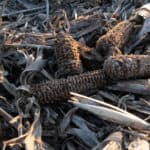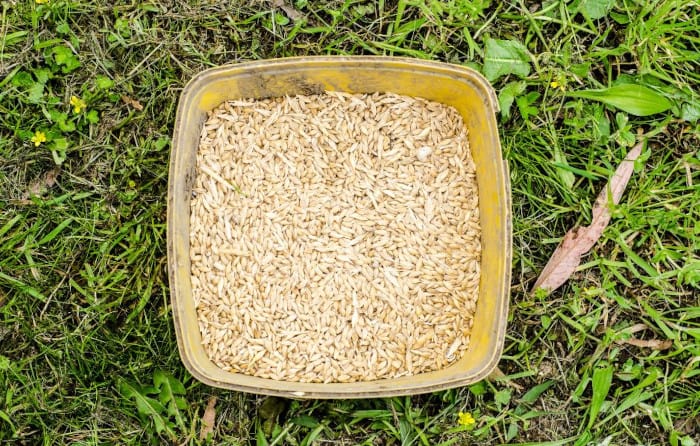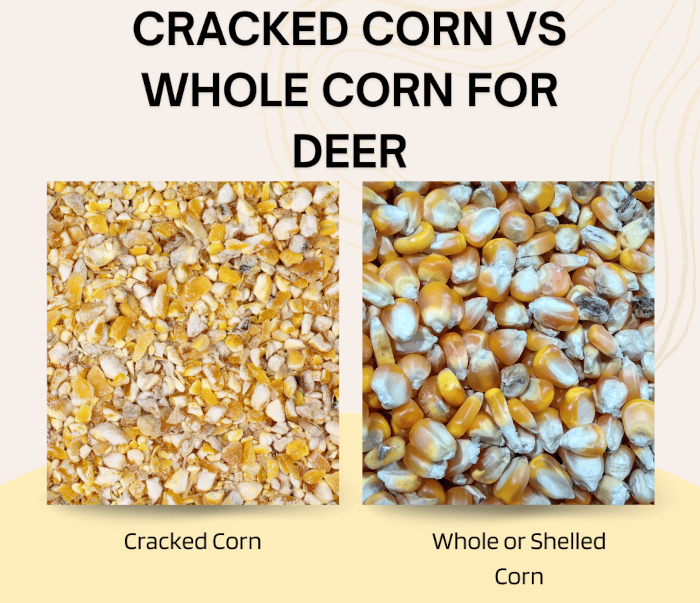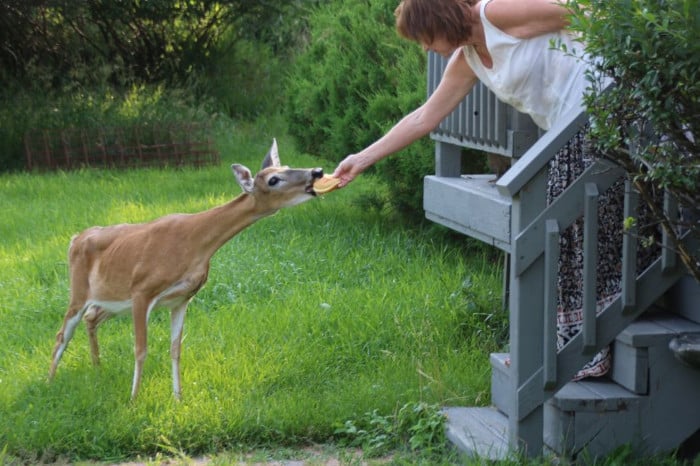Anytime someone asks me about feeding deer oats at my day job, I always feel the need to ask some follow-up questions to ensure that we are on the same page and to ensure that they are not asking if deer can eat oats made for human consumption (like Quaker Oats). I see and hear several different questions related to oats, but the most common one seems to be this one: can deer eat oats?
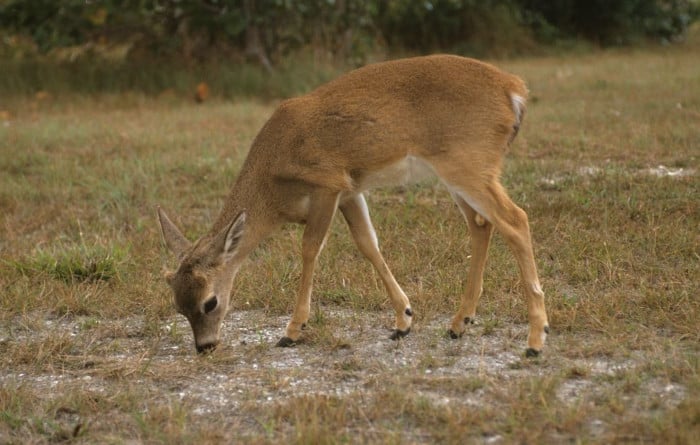
Clarifying the Type of Oats
Before I get started discussing oats as it relates to whitetail deer, it’s important to mention that there are two common types of oats:
- Commercially grown oats for animal feed
- Oat-based products are made for human consumption.
For the purposes of this post, I’ll be focusing on the oats grown for animal feed versus the oat products manufactured for human consumption.
There are eight primary families of oats grown all over the world, but only a few types are suitable for humans to eat. The oat species grown for livestock feed are produced in much greater quantities and account for a much larger percentage of all the oats grown annually.
Key Points
– Oats can be included in a deer’s diet as they are high in carbohydrates and provide energy.
– Oats should not be the sole component of a deer’s diet; they require a varied intake for nutritional needs.
– Oats aid in digestion and prevent digestive issues like bloating or constipation in deer.
– Feeding oats to deer should be done in moderation and following feeding regulations to ensure their well-being.
Understanding the Dietary Habits of Deer
Technically speaking, deer are officially classified as herbivores, although there is some interest in reclassifying deer as omnivores as they occasionally consume meat. The herbivore classification means that deer primarily consume plant matter. They have a diverse diet that consists of grasses, leaves, twigs, fruits, and even bark. However, their preferences may vary depending on the season and availability of food sources.
When it comes to oats, almost every species of deer is known to consume them. Oats are high in carbohydrates and provide a good source of energy for these animals. However, it’s important to note that oats shouldn’t be the sole component of a deer’s diet as they require a varied intake to meet their nutritional needs.
Assessing the Nutritional Value of Oats
Oats, being a type of cereal grain commonly found in many regions, present an interesting possibility for inclusion in a deer’s diet. To determine if oats are suitable for deer consumption, it is crucial to assess the nutritional benefits of oats. Additionally, it’s vital to consider any risks or concerns that may arise from feeding oats to the local deer population.
Oats are packed with essential nutrients that can have a positive impact on deer health. When assessing nutrient content, oats contain a significant amount of protein, fiber, and carbohydrates. Protein is especially important for deer as it aids in muscle growth and repair.
Additionally, the high fiber content in oats helps promote digestion and prevents digestive issues in deer. Carbohydrates found in oats provide a crucial source of energy for these animals, enabling them to sustain their daily activities.
Overall, including oats in a deer’s diet can contribute to their overall well-being by providing essential nutrients necessary for optimal health and vitality.
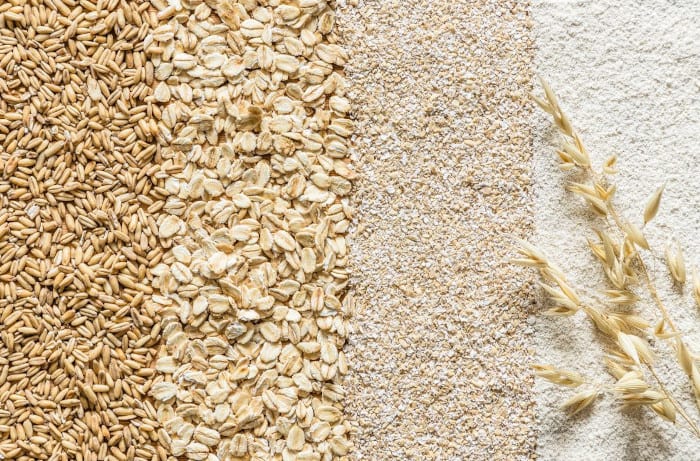
Potential Risks or Concerns of Feeding Oats to Deer
While most species of oats are safe for consumption by deer, there are a few potential concerns to be aware of.
While oats can provide some nutritional benefits for deer, there are also potential risks associated with feeding them this grain.
One concern is the high carbohydrate content of oats, which can lead to digestive issues such as bloating or diarrhea in deer. Additionally, if oats are not properly processed, they can potentially contain harmful mycotoxins that may pose a health risk.
It’s important to note that oats should only be provided as a supplement to a deer’s natural diet and shouldn’t replace their primary food sources.
Can Deer Eat Oats Made for Human Consumption?
Since oats made for human consumption go through a different process compared to oats grown for animal feed, it’s not advisable to feed deer oats from the cereal aisle in your local grocery store. Those oats are highly processed and contain additives that may adversely impact a deer’s digestive system.
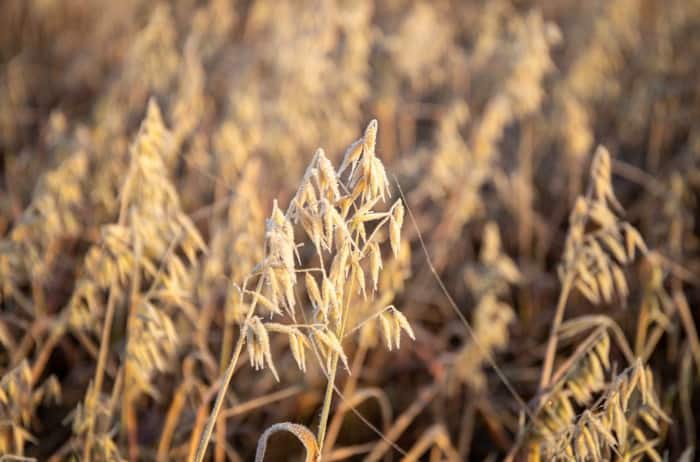
FAQS
Can I plant oats for deer in my food plot?
Oats are an excellent choice for a food plot as they hold up well during the cold, are relatively drought resistant, and will draw deer when food becomes scarce.
Are oats good for deer to eat?
Yes, oats have nutritional benefits for deer and are considered a good food source.
Can oats be dangerous for deer to eat?
No, oats are safe for deer to eat in moderation and do not pose any danger to them. The only potential issue with oats is they function best as a secondary food source versus a primary one.
How can I keep deer from eating oats in my garden?
Keeping white-tailed deer out of a garden is about the same challenge as keeping the squirrels out of a bird feeder. A: To keep deer from eating oats in your garden, you can use deterrents or fencing to protect the plants.
Do deer prefer oats over other food sources?
Deer do like various species of oats and may choose them over other available food sources. However, there are several variables that play a role, including the time of year, temperature, other available food sources, etc.
Can I use oats as a feed for deer?
Oats can be used as feed for deer through a deer feeder or food plot. Oats are a popular choice for food plots, especially in cold weather areas.
What kind of oats are suitable for deer?
Rolled oats or whole oats are preferred by deer and can be provided as an excellent food source for deer.
